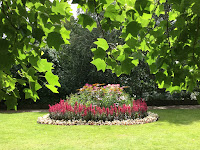UNESCO has just published a very substantial (400 page!) open-access document:
Grizzle, A. et al. (2021). Media and information literate citizens: think critically, click wisely! Media & information literacy curriculum for educators and learners. ISBN 978-92-3-100448-3. https://unesdoc.unesco.org/ark:/48223/pf0000377068.locale=en At the moment it is just in English.
This is a 2nd edition of their MIL Curriculum for teachers, but this time they are identifying it as a curriculum for all people.
It will take a while to examine it thoroughly. A quick glance shows that it is still biased towards media literacy, rather than information literacy (e.g. in putting more attention to "media" than to other types of information, in paying more attention to young people's engagement with media than other age groups'; giving many more examples of other media literacy frameworks than IL ones).
However the scope is expanded and improved from the previous edition, and it covers some very interesting aspects of the field: a rich sourec to mine for education in information literacy!
The introduction includes an explanation of the importance and impact of MIL, and has diagrams and tables outlines: knowledge, skills and attitudes for MIL; the contribution of information literacy. media literacy and digital literacy; learning outcomes and comptencies; vaues and attitides that can be encouraged by MIL; the curriculum framework (based around three themes: (1) Knowledge and understanding of information, media and digital communications for sustainable development, peace, and democratic discourses and social participation. (2) Evaluation of content and related institutions. (3) Production and use of content.
They then relate the modules in the curriculum to MIL competencies:
1. Understanding the Role of Information, Media, and Digital;
2. Understanding Content and its Uses.
3. Accessing Information Effectively and Effciently and Practicing Ethics
4. Critically Evaluating Information and Information Sources and Ethical Practices.
5. Applying Digital and Traditional Media Formats.
6. Situating the Sociocultural Context of Information, Media, and Digital Content.
7. Promoting MIL Among Learners/Citizens and Managing Required Changes.
Following this there is a short section on pedagogy and a list of related frameworks and guides
Most of the document consists of detailed information on the modules for the curriculum, each module split into units. For each unit there are sections on: key topics; learning objectives; Pegagogical approaches and Activities; Assessment. There is variation between the units - some of the sections outline specific suggested activities, some section rather summarise key themes and topics under that heading. The assessment section is generally just a list of assessment types (e.g. "Written examinations, presentations/viewings, Participation in group learning activities, Production of information-education-communication materials (e.g. posters, brochures, infographics, social media cards, vlogs), Research paper, Investigative story/report" (I haven't examined each unit yet, but all the ones I've looked at so far are like that).
The modules are 1. Foundation module (introduction). 2. Understanding IT 3. Research, content cycle, digital information processing, intellectual property 4. MIL competencies to tackle hate speech 5. Audience and global citizenship 6. Representation in media and information 7. How media and technology affect content 8. Privacy, data protection and you 9. Internet opportunities and challenges 10. Advertising and MIL 11. AI, Social media and MIL competencies 12. Digital media, games and traditional media 13. Media, technology and the sustanable development goals. 14. Capstone.
I'll probably blog some more about this, there's a lot to take in!

















